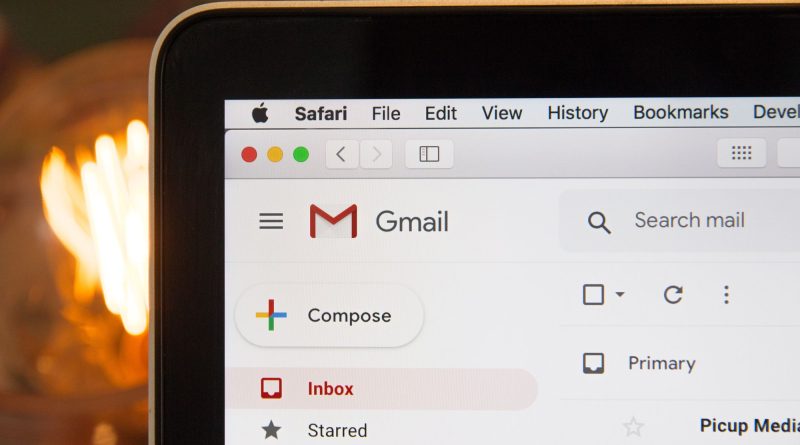Email for Kids – Parents Must Know
When parents allow their children to use email, they must be vigilant. There are several safety concerns that parents should be aware of. We’ll cover some of those safety issues and how parents may safeguard their kids when they’re using email in this post. We’ll also go through some of the greatest emails for kids.
Introduction to email
Before we dive into deep details, let’s begin with an introduction to email. An e mail is a message that is sent electronically from one person to another. It can be used to communicate with family, friends, and businesses. Email is a quick and easy way to stay in touch with people all over the world.
There are plenty of benefits to children using email. It allows them to communicate with their friends and family members in a way that is convenient and fast. However, there are three safety concerns that parents need to be aware of.
Predators
Predators can use email to contact children and try to lure them into meeting with them. Parents should talk to their children about not giving out personal information to anyone online. They should also teach their children to never meet up with someone they have only talked to online.
Cyberbullying
Children can be bullied through email by other kids or adults. Parents should talk to their children about not responding to bullies and to tell them if they are being bullied. They should also report any cyberbullying to the appropriate authorities.
Internet safety
Children can access a lot of inappropriate content on the internet if they are not careful. Parents should talk to their children about not clicking on any links or downloading any files without permission. They should also make sure that their children are using age-appropriate safe search engines and websites.
By talking to your children about safety and monitoring their email usage, you can help keep your children safe while they are using email.
Why learning email is important for children?
Email is a very important skill for children to learn. It teaches them how to communicate effectively through email. They will learn how to type correctly, use proper grammar, and spell words correctly. This will help them when they are sending emails for school or work.
It teaches them how to be respectful when communicating with others. Also, they can learn how to use a courteous tone and not to use offensive language.
Finally, learning email will help children understand the importance of privacy. They will learn that they should not share personal information with anyone online. By teaching your children email , you can help them stay safe online and prepare them for the future.
What safety measures should parents take?
There are a few safety measures that parents can take to help protect their children while they are using email.
- Talk to your children about safety and make sure they understand the dangers of meeting up with someone they have only talked to online.
- Make sure your children are not responding to bullies. If they are being bullied, make sure to report it to the authorities.
- Teach your children not to click on any links or download any files without permission.
- Monitor your children’s email usage and make sure they are only accessing age-appropriate content.
- Keep your children’s passwords safe and don’t share them with anyone.
By following these safety measures, you can help keep your children safe while they are using email.
Can a 12 year old child have a personal email account?
Yes, a 12 year old child can own email address because it is an applicable age. However, it’s important to make sure that the account is set up safely. There are a number of different email providers that offer safe accounts for kids, such as Google’s Gmail for Kids. You can also take safety precautions on your own by teaching your child how to use email safely and by monitoring child’s account activity.
Just make sure to set up their account safely and teach them how to use email responsibly. Additionally, it’s important to talk to kids about online safety. Teach them not to share personal information like their name, addresses, or phone number with anyone they don’t know.
Tips to keep yours child’s email account safe:
Setup a monitored accounts:
As a parent, you may want to consider setting up a monitored email account for your child. This means that you will have access to their account and can see all of the messages that they send and receive, accept or deny and remove the mail from the mail queue. You can also set limits on who they can contact on Contact Manager and what types of attachments they can send. You can also set parental controls on email accounts to limit the amount of time kids spend on the internet and to set up basic digital ground rules by protecting in the digital world.
Explain the dangers:
Before you let your child set up an email account, it is important to explain the dangers of the internet. This includes cyberbullying, online predators, and inappropriate content. Make sure your child understands that they should never give out personal information to anyone online, meet up with someone they have only talked to online, or click on any links or download any files without permission.
Create a safety contract:
Another way to help keep your child safe while using email is to create a safety contract. This is a document that you and your child will both sign, agreeing to follow certain safety rules when using email. Some of the rules could include not sharing personal information, not responding to bullies, and only accessing age-appropriate websites.
Create a strong password:
It is important to create a strong password for your child’s email account. This should be a combination of letters, numbers, and symbols. The password should be at least eight characters long. You should also avoid using easily guessed words like “password” or your child’s name.
Report any suspicious activity:
If you see any suspicious activity on your child’s email account, make sure to report it to the authorities. This includes any messages that are inappropriate or any contacts that seem suspicious.
By following these tips, you can help keep your child’s email account safe. Some email providers, such as Gmail, offer this type of account for free with basic service. But also some other offers a premium service that includes additional safety features.
Best email for kids
There is no one “best” email provider for kids. It really depends on the needs of your child and what safety features you are looking for. Some parents may prefer email services that offers a monitored account, while others may prefer one with stronger parental controls. Ultimately, it is up to you to decide which email service is best for your child.
Some popular email providers that offer safety features for kids include Google Apps (Gmail), Microsoft Outlook, and Yahoo Mail. These providers all have different safety features where you can gain access to, so be sure to read the fine print before signing up.
Gmail
For example, Gmail offers a “Google Family Link” which gives parents access to their child’s account and allows them to approve or deny any messages or attachments.
Microsoft Outlook
Microsoft Outlook offers a “Safety Center” with tips on how to keep kids safe online, manage their contact list as well as safety features like age-appropriate filters and the ability to report suspicious activity.
Yahoo Mail
Yahoo Mail offers similar safety features, such as the ability to filter messages and attachments by age group and the option to report suspicious activity.
While there is no one “best” email service for kids, be sure to research the safety features offered by each provider before signing up. This will ensure that your child is using a service that is safe and fits your family’s needs.
Email terminology a parent should know
Spam
Spam is unsolicited emails that are sent to you without your permission. It can be harmful because it may contain viruses or other malicious software. if you receive a spam email, you should report it as spam and then delete it.
Phishing
Phishing is a type of scam where someone tries to trick you into giving them personal information, such as your password or credit card number. They may look like they’re from a legitimate company, but they usually have some red flags, such as poor grammar or misspellings. If you receive a phishing email, do not respond to it and do not click on any links. Report the email as spam and then delete it
Email viruses
Email viruses are malicious software that can be attached to an email and then infect your computer when you open the email. To protect yourself from email viruses, you should have antivirus software installed on your computer. You should also be careful about opening emails from people you don’t know, and refrain from clicking on any attachments. If you think you’ve been infected with a virus, you should scan your computer with antivirus software and then delete the email.



